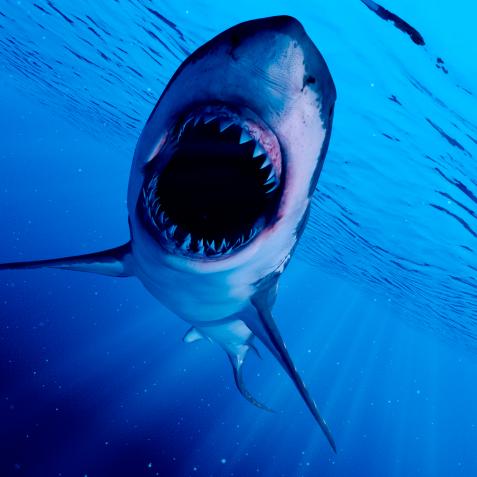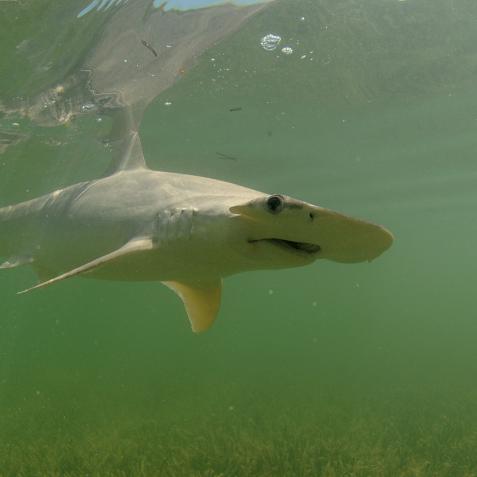
Image Source
This is What is Killing Sharks
Despite sharks sitting at the top of their food chain as an apex predator, they are an endangered species as a result of human activities.
The entire ocean ecosystem is impacted by declining shark populations, with some species, such as the hammerhead, bull, and dusky varieties plummeting by as much as 99%. They’re particularly vulnerable to exploitation because they produce few pups and they sexually mature later in life. If the shark population disappears, then the rest of the fragile ocean ecosystem completely falls out of sync, with devastating consequences for other marine life. When sharks don’t consume their prey, those would-be predators grow exponentially, meaning their prey is over consumed, essentially leading to starvation and a collapse of that species. Although the shark fin trade is one of the main reasons for sharks’ plunging populations, it’s not the only one.

Aleksandra Golubtsova
Bycatch
Bycatch is the unintentional capture of a species by fisheries. Commercial companies that target tuna and billfish have a huge impact on sharks. Some fisheries even catch more sharks than they do the species they are intending to catch, according to the Food and Agriculture Organization of the United Nations. Some estimates put the number of sharks caught in bycatch every year at tens of millions. Longline fishing, trawls and gill nets are some of the most troublesome fishing equipment for sharks. Longline fishing uses thousands of hooks that are baited and hang from a single line, which can be miles long. The baited hooks are an easy meal for any predator, including sharks, and by the time the lines are removed form the water the hooked sharks are often dead.
Trawls are large nets pulled along the seabed and again are indiscriminate to their prey, as are gillnets, which are long walls of nets hung in the water to trap and hold fish, which become caught when they swim into the invisible netting and try to back out.

Swiss/Canadian underwater photographer.
Overfishing
Overfishing is the biggest threat to sharks: more than 100 million shark are killed every year, with a large number of them being caught for their fins. But some scientists say that the finning trade means the general issue of overfishing is often overlooked. “The solution overwhelmingly supported by surveyed scientific experts is not banning fishing for sharks and trade in shark products,” shark researcher David Shiffman told Mongabay, “but making fishing more sustainable.”
Sharks are also caught for their meat, liver oil, cartilage, leather and their teeth.
Shiffman added: “There are many threats facing sharks, but one, which is not the biggest threat, gets the most attention.”
Shark fishing has expanded globally for the last few decades, and inadequate fishery management is a huge challenge for shark conservation, according to the Shark Trust. “Our job becomes more challenging still due to a lack of shark data and resources.”

Velvetfish
Habitat Destruction
Climate change and an increasingly polluted ocean is also having an adverse impact on sharks. To survive sharks need food, areas to breed, give birth, and shelter for their young. A warming ocean can mean sharks’ prey shift to cooler waters, and so the sharks are forced to follow. Phytoplankton, at the base of the food web for marine life, are decreasing as oceans warm, meaning less food for the animals on the rest of the food chain. The ocean also absorbs carbon, and as emissions increase, the oceans become more acidic, which impacts shark physiology. One study measured the impact on a shark’s sense of smell, and therefore its ability to hunt. Researchers found one species, the dogfish shark, were not attracted the smell of squid at the carbon dioxide levels the ocean is projected to have in 2100.


















